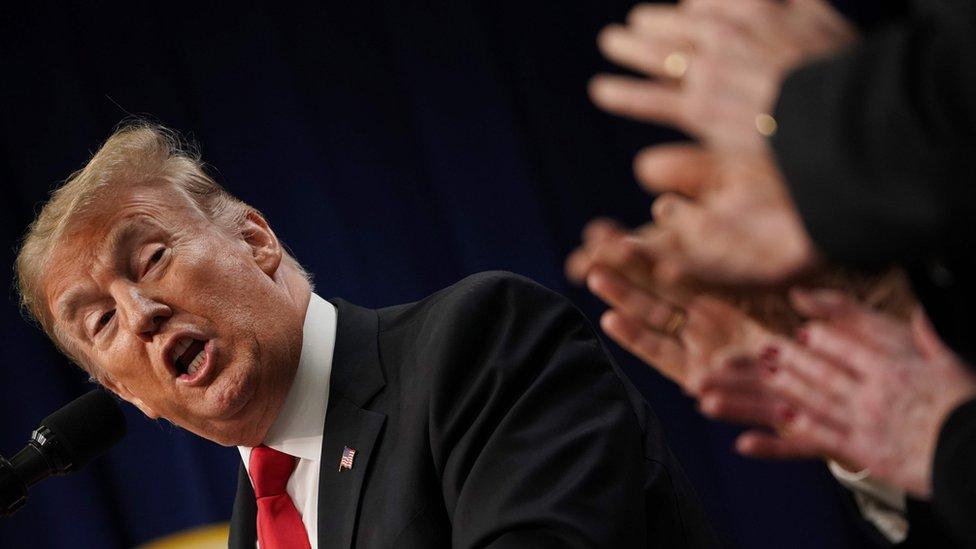Shutdown threat adds to Wall Street woe
- Published

Donald Trump said he wanted the funding bill to include more money for "border security"
Wall Street shares closed at their lowest levels in roughly 14 months on Thursday, as the threat of a government shutdown added to wider investor angst.
Losses accelerated around midday, as Republicans said President Donald Trump would not sign the current bill to fund the government.
Shares rebounded a bit but fell again as Mr Trump spoke about his decision.
The blue-chip Dow Jones index sank 2%, while the S&P 500 and the tech-heavy Nasdaq ended about 1.6% lower.
The three major indexes are now down 6% or more since the start of 2018.
Mr Trump's statement on Thursday that he will not sign a funding bill without more money for border security added to the worries about global growth, rising interest rates and trade that have rocked markets in recent weeks.
While the threatened government shutdown would affect only a small portion of operations, it could still shave about $1.2bn off GDP for each week the government is closed, according to analysts at S&P Global Ratings.
"This is not the way to ring in the holiday season and the new year," they said.
Thursday's declines were led by the energy sector, which was grappling with a 5% fall in oil prices.
On the Dow, Walgreens Boots Alliance was the biggest loser, tumbling more than 4% after reporting weaker-than-expected quarterly earnings, driven in part by muted demand in the UK.
On Wednesday, the Federal Reserve increased its benchmark interest rate by 0.25%, the fourth such increase this year.
The decision spurred a sell-off in US markets, which was followed on Thursday by losses in Asia and Europe.
- Published20 December 2018
- Published14 December 2018